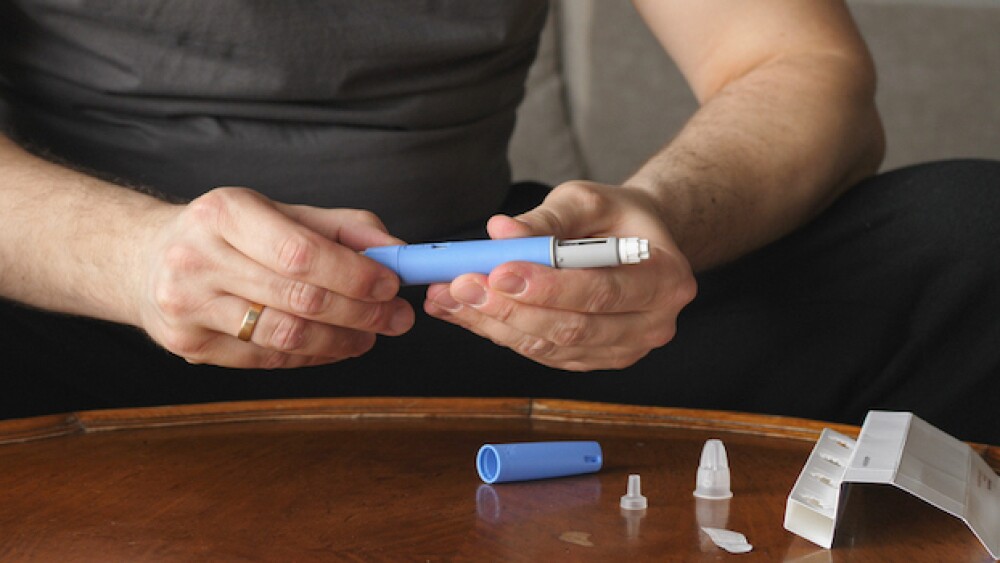More than 3,000 people in the U.S. suffered from side effects of Ozempic in 2023, according to exclusive reporting on Wednesday from Reuters citing data from America’s Poison Centers.
Pictured: Man preparing his injectable diabetes therapy/iStock, imyskin
Suspected fake versions of Novo Nordisk’s top-selling diabetes drug Ozempic (semaglutide) have been linked to three cases of severe hypoglycemia requiring medical intervention, according to exclusive reporting from Reuters published Wednesday.
Citing America’s Poison Centers, which represents 55 regional poison centers across the U.S., Reuters revealed that all three incidences of hypoglycemia were detected by the same regional poison control center and that the FDA was investigating these reports.
In 2023, America’s Poison Centers logged 3,316 reports from people taking versions of Ozempic, which is more than twice the number of Ozempic-related reports posted in 2022, clinical managing director Kaitlyn Brown told Reuters. Most of the complaints were mild and were for known side-effects of Ozempic, including vomiting.
However, 66 people experienced hypoglycemia, though almost all of them appeared to be taking brand-name Ozempic, according to Brown. Most of these patients sought medical treatment at a hospital.
Ozempic’s active ingredient semaglutide is a GLP-1 receptor agonist, which works by mimicking the GLP-1 hormone and triggering the secretion of insulin in response to blood glucose concentrations. Semaglutide was approved as Ozempic in December 2017, for the treatment of type 1 diabetes, but is also indicated for chronic weight management, for which it is being marketed as Wegovy.
Since it was first approved in June 2021, Wegovy has struggled to meet the market’s insatiable appetite for the weight-loss drug, made worse by supply constraints and manufacturing issues.
Novo has since pledged a $6 billion investment to boost its manufacturing capacity for Wegovy. However, the market’s impatience has proven to be fertile opportunity for compounded and counterfeit versions of both Wegovy and Ozempic.
In June 2023, the FDA warned consumers that some clinics and pharmacies were selling compounded versions of Ozempic and Wegovy, in which the drug is altered or mixed in with other ingredients that could affect its efficacy, quality and safety. These compounded versions are unapproved and the regulator cannot ensure their safety.
Last year, Novo took its own action and filed several lawsuits against medical spas, wellness and weight loss clinics and pharmacies, alleging that they were selling and advertising semaglutide-containing products. Novo owns the rights to semaglutide and there are currently no FDA-approved generics for the drug.
In December 2023, the FDA again put out a notice to the public announcing that it had seized “thousands” of counterfeit Ozempic injections, which according to the regulator have been linked with at least five adverse events—though none of which were serious. The FDA also noted that the injection needles were counterfeit and their sterility could not be guaranteed, further highlighting the potential risk to consumers.
Tristan Manalac is an independent science writer based in Metro Manila, Philippines. He can be reached at tristan@tristanmanalac.com or tristan.manalac@biospace.com.






